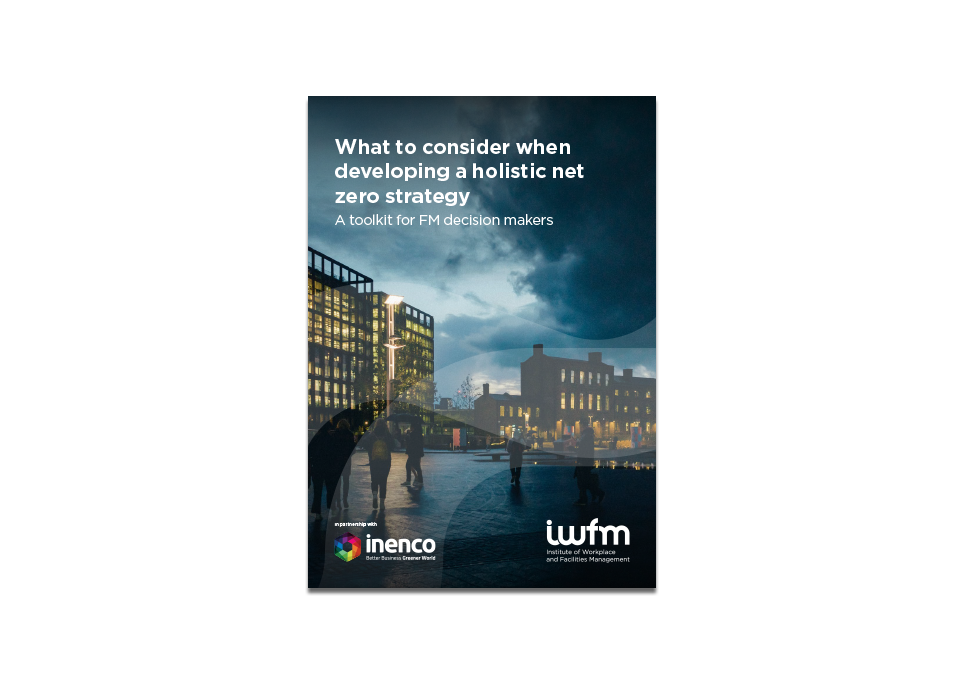What are the key success factors of holistic sustainability strategies?
News
- Sustainability
15 June 2023

Developed in partnership with Inenco, the IWFM Net zero toolkit, or ‘What to consider when developing a holistic net zero strategy - A toolkit for FM decision makers’ to use its full name, provides guidance on the different phases of developing a holistic environmental sustainability strategy, the considerations and clear outcomes at each stage, and the common barriers that may be experienced. It also offers templates and examples which are complemented by vertical guidance pieces focusing on specific topics, such as healthy buildings, building control and energy management systems, social value, and more.
Members can download the IWFM Net zero toolkit now by clicking here, but for those who want to digest it in full another time, here are two excerpts from the guidance’s introductory sections which explain the key success factors of a holistic strategy and the methodology behind creating it.
The key success factors of holistic environmental sustainability strategies
In the first instance, it’s key that the organisation wants to address climate net zero. To help enable the right conditions and frame of mind, it will be important to have both top-down accountability and bottom-up responsibilities. Having the right people and capabilities in place will help support this in turn.
Running a clear communication strategy to raise awareness about what can be done, what needs to be achieved and to ensure buy-in is essential, both for an internal audience and for the supply chain and clients.
Net zero strategies are not an easy, quick to implement short fix. They tend to be multi-year programmes, which is why it is important to make it bitesize and show progress against key performance indicators and milestones. Having the right data to both inform an evidence-based approach and the measuring of progress is also essential. Together with the KPI and
measuring piece, it is important to understand and agree early on what external reporting obligations will be met as this will inform strategic approaches.
And lastly, the net zero agenda can no longer be treated as a separate strand of activity, its goal is about real-life existential impacts, any net zero strategy needs to be integrated – it’s the responsible way of doing business.
Net zero strategy – a methodology
Many organisations talk about developing a net zero strategy, often because they are being challenged from an ESG perspective or on the other end of the spectrum, because their customers expect to see outcomes and impacts being delivered. After
more than 30 years of the sustainability debate, however, this important agenda is no longer an ‘add-on’ - it is core to doing business if organisations have long term ambitions of success.
Any strategy needs to understand what the ambitions of the organisation are, where the organisation currently is and the impact it makes, and who its key stakeholders are so that an evidence base, and benchmark can be laid to measure progress against in future.
From an understanding of where the organisation is, overlaid with its ambitions, a roadmap towards its ultimate goal can be developed. Such a roadmap should mark important milestones towards achieving that goal. A clear strategy will not only help identify the key internal structures and processes that will help achieve the outcomes sought, its communication to all employees and key stakeholders, will help cement accountability, responsibility and buy-in.
Download ‘What to consider when developing a holistic net zero strategy - A toolkit for FM decision makers’ today to advance your organisation’s journey towards net zero.
